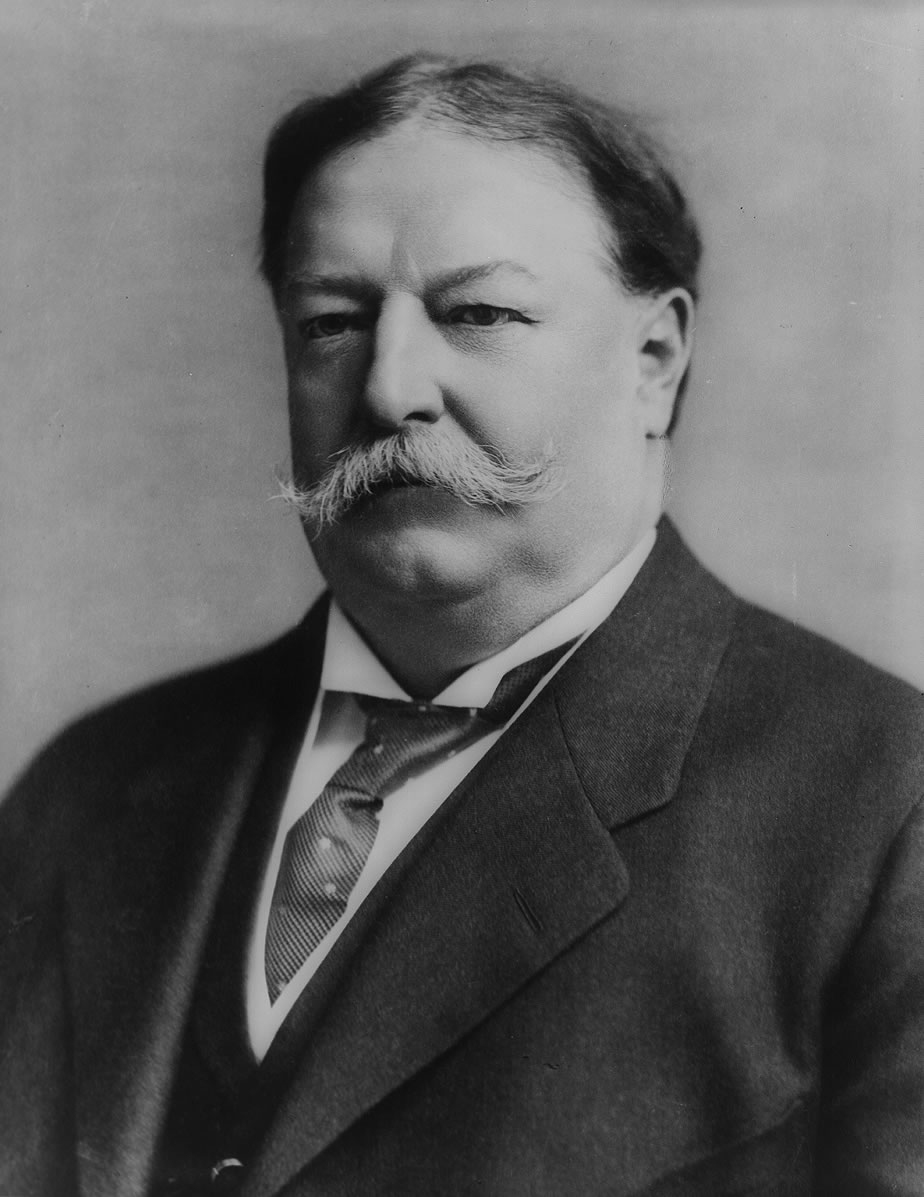 William Howard Taft was born on September 15, 1857 in a small town near Cincinnati, Ohio. After eating it, he moved on to Yale College to pursue higher education.
William Howard Taft was born on September 15, 1857 in a small town near Cincinnati, Ohio. After eating it, he moved on to Yale College to pursue higher education.Much like his predecessor, Taft's political career was largely a product of the progressive climate that dominated the national legislative trends of his time. Taft's primary presidential legacy may in fact be his remarkable lack of political acumen, and an unfailing ability to alienate all interest groups involved in a given issue. This has to be a plus. If the American public is continuously incensed at whichever individual holds the office of President, it logically follows that the position will be abolished eventually.
Taft teased Libertarians throughout his presidency, favoring some policies which furthered, and many which greatly hindered the cause. Most fans of freedom are probably most familiar with Taft's support of the bane of Libertarians. I mean, the Sixteenth Amendment which allowed for the creation of a federal progressive income tax structure.
With our knowledge of this perversion of public policy practically, it would be practically impossible that Taft will pass our Super Leader's Final Score, assuming he was not secretly responsible for consuming dozens of unnecessary government offices while dining at the White House. Altough progressive income tax structures represent the antithesis of Libertarian thought, Taft made a number of more subtle advancements of freedom during his presidency, undoubtedly in order to eschew an unrestrained verbal pummeling in this very assessment.
The primary example of this is his support of the Payne-Aldritch Tariff Act of 1909 which liberated constricted global markets and sparked industrial growth worldwide. Also, Taft restructured Roosevelt's ghastly foreing policy, specifically in Latin America, by pioneering the concept of Dollar Diplomacy, which invested American dollars in the infrastructure of developing economies. Don't get me wrong here. I am absolutely of the opinion that wealth should be invested by those who created it, and not by the government. But if I'm financing foreign operations, I would rather they be profitable and peaceful investments than violent and cost inefficient military conflicts.
Despite these improvements on the previous administration, Taft was known as a liscentious "Trust-Buster", and infamous for the indescretion he used when selecting American corporations to dissolve. Such blatant meddling in the private sector in unacceptable, and negates any positive influence on his score which other policies may have generated.
Super Summary: Although Taft displayed a modicum of public policy preferences favorable to the Libertarian struggle such as tariff reduction and improvements in foreign policy, his key part in overseeing the passage of the constitutional amendment most detrimental to freedom and his disregard for free markets renders him nearly as politically hyperactive as his predecessor.
Super Score: 5 (one fore every meal of the day...)

No comments:
Post a Comment